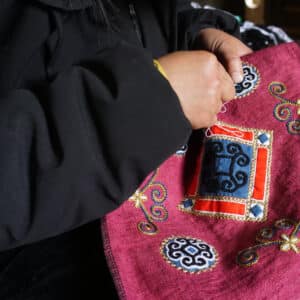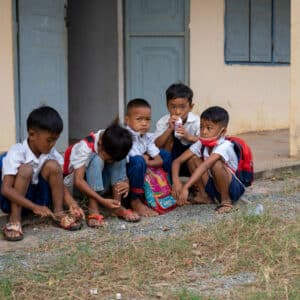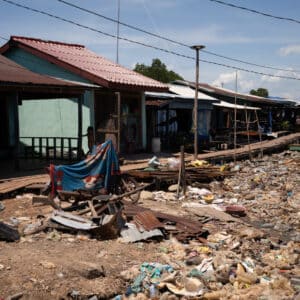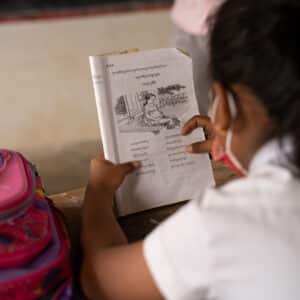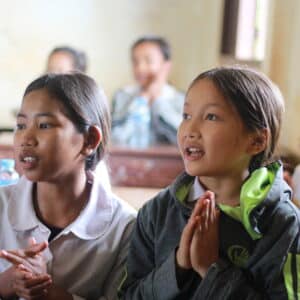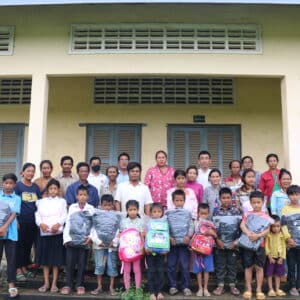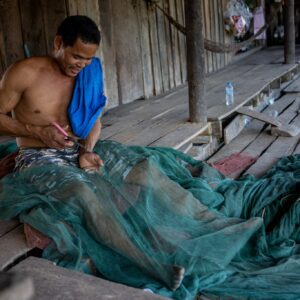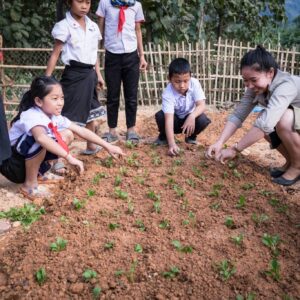In rural Vietnam, livelihood and business training is offering 35-year-old Giàng Thị Cở a chance to pursue her dreams even in the face of the many challenges 2020 has thrown at her.
Giàng Thị Cở, born and raised in Lao Chai village – a small, rural village in Vietnam’s northern Lao Cai province – never received an opportunity to attend school as a child. Like many rural women from Mong ethnic heritage, Cở married before she turned 18 and her focus was on raising her two children and making a modest living from farmwork.
Within ethnic minority groups, levels of exclusion are often magnified for girls, particularly in terms of education. One contributing factor is early marriage and adolescent pregnancy – according to the World Bank, over 23% of ethnic minority women currently aged 20 to 49 were married before age 19.
Despite only accounting for 15% of the country’s total population, Vietnam’s ethnic minority groups account for 73% of the country’s poorest population and largely live in remote and rural areas, with their geographic location acting as a further barrier to accessing quality education and health services, as was the case for Cở. However, after a visit to nearby Sapa, a small mountain town popular with trekkers, Cở sought to use her rural location to her advantage and become a tour guide.
Refusing to let illiteracy hold her back
Despite being illiterate, she enrolled on a three-month tour guide course to obtain a certificate, after which she began to learn English for two hours per day. Her goal was to be able to confidently communicate with guests and step by step, she began to learn several languages and carved out a new path for herself leading her to develop career ambitions for the first time in her life. Now, after seven years, she speaks Mong, Vietnamese and English fluently and is at beginner’s level French, German, Dutch, Spanish, Italian and Hebrew.
Cở’s commitment earned her the title of “the most popular guide in Sapa” . Together with her husband, the pair offered tourists a full package – a homestay environment with home-cooked meals prepared by her husband and guided tours in the rolling fields and mountains as well as traditional songs and dances in the evening. “I want to show others how we live as a Mong family, what we eat, what we do together daily so that they can understand our culture”, she explained.
Holding on to her dream
Sadly, this year Cở’s aspirations were dealt severe blows. Not only did the Covid-19 pandemic disrupt travel and trade in her region but Cở’s husband also unexpectedly passed away, leading her to close her business and rely on her embroidery skills to make a living for now.
But, still, she is holding on to her dream and hoping to be able to return to what she loves, she joined Aide et Action’s Business Incubator project earlier this year. « I am proud of myself to become who I am today and I will continue to work harder, will not give up the path I have chosen », she said.
With support from HSBC, Aide et Action’s Business Incubator project is designed to support ethnic minority entrepreneurs to set up their own businesses in Lao Cai and Hoa Binh province. The incubator is encouraging young entrepreneurs like Cở to explore new options and opportunities other than traditional career paths so they may realise their entrepreneurship aspirations, as well as to inject new impetus into economic development.
Under the project, Cở has been developing her business mindset and business plan and in early November 2020, she joined our Basic Business Management Skills Training Program in Lao Cai for five days and was awarded a certificate for her participation.
Leaving nobody behind
Backed with funding provided by the EU, we are also currently collaborating with North West Development Center, a local NGO based in Hoa Binh, on a project to initiate reforms to meet the needs of minority youth. This 42-month project which started earlier this year is set to reach 7,165 ethnic minority youth, including 5,088 high school students, 1,441 college students, and 636 youth not currently enrolled in formal education.
As part of the project, career orientation materials for upper-secondary schools will be reviewed and revised. This will involve close collaboration with almost 1,000 teachers, including 365 from vocational training colleges and 584 from high schools, as well as 74 staff from local authorities and 50 local enterprises.
Through projects such as this and our Business Incubator, we aim to provide lifelong learning opportunities for people like Cở and also her children, who are now enrolled in secondary school. Cở hopes that improved access to quality education and vocational training will allow her 17-year-old son to train as a cook and follow in his father’s footsteps of providing home-cooked meals at the family’s homestay.
By cross-collaboration with schools, businesses, local communities, private financial institutions, and local authorities, we wish to ensure minority groups do not get left behind.




